Are you interested in buying a horse property? Having your horses at home is a dream for many horse owners. There are so many things to think about when buying a horse property.
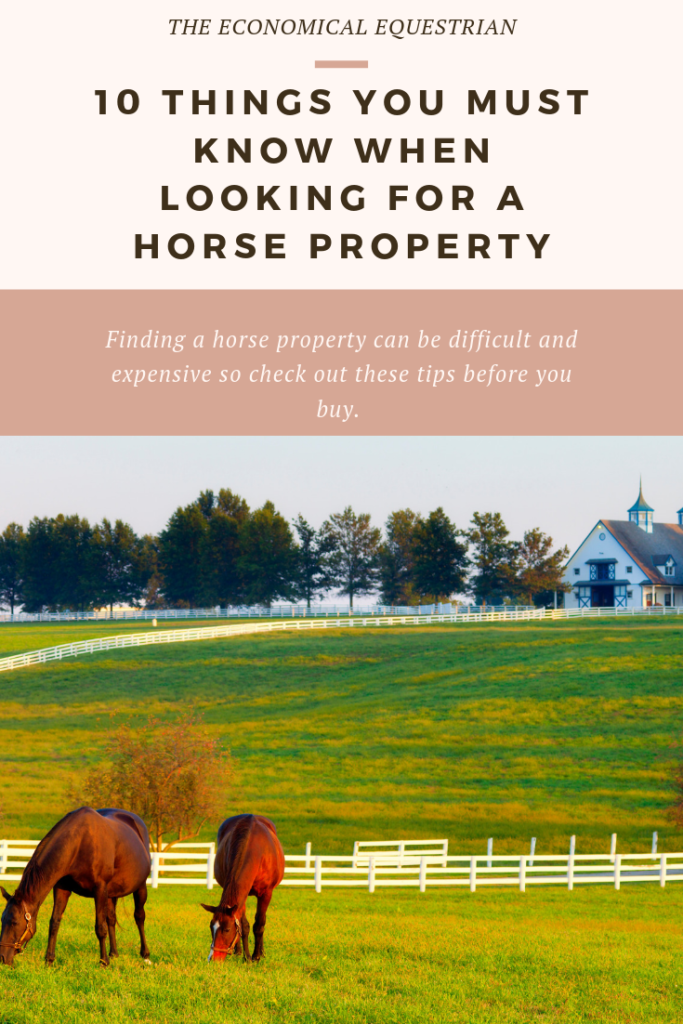
Owning is a horse property is undoubtedly a lot of work, but also so rewarding. When preparing to buy a horse property, there are a lot of things to consider. Will you have to build what you want? Or will you be able to find the house and horse facilities you are looking for? We purchased a horse property in 2015, and it took more than 6 months to find the right property.
When we were looking, we did not have a horse property experienced agent, and I really wish we had. I had to do a lot of the work myself! Our agent wasn’t even the one who found our house because he didn’t listen to me about the search criteria I wanted on their MLS search… Thank goodness I had searches saved on Zillow for what I wanted.
Learn from other people’s mistakes and check out all of these things you should look at when purchasing a horse property.

The most important things to think about when looking for a horse property are:
- Budget
- Acreage
- Existing Set-Up
- Zoning
- Water
- Health of the land
- Location
- The House
- Fencing
- Real Estate Agent
Budget

Since this is The Economical Equestrian – let’s talk about budget first.
Horse property can get expensive which is why you need to be realistic with your budget. Most financial gurus can agree that you should not spend more than 30% of your income on housing expenses.
Before you start searching for the actual property, set a budget ahead of time. What can you realistically afford?
Need to build your savings? Learn how to start a savings goal here.
Don’t forget to factor in all the other expenses of a horse property:
- Arena Maintenance
- Fence Maintenance
- Water
- Trash and/or manure disposal
- Road and paddock maintenance (like mud control!)
- Purchasing hay for your horses
- Bedding for your horses
- Tractor purchase and maintenance
- Electricity
Once you have established a budget, make sure your agent will stick to your budget, or be prepared to let a property go if they won’t come down on price to meet your budget.
If you need help starting a budget – check this out.
Acreage
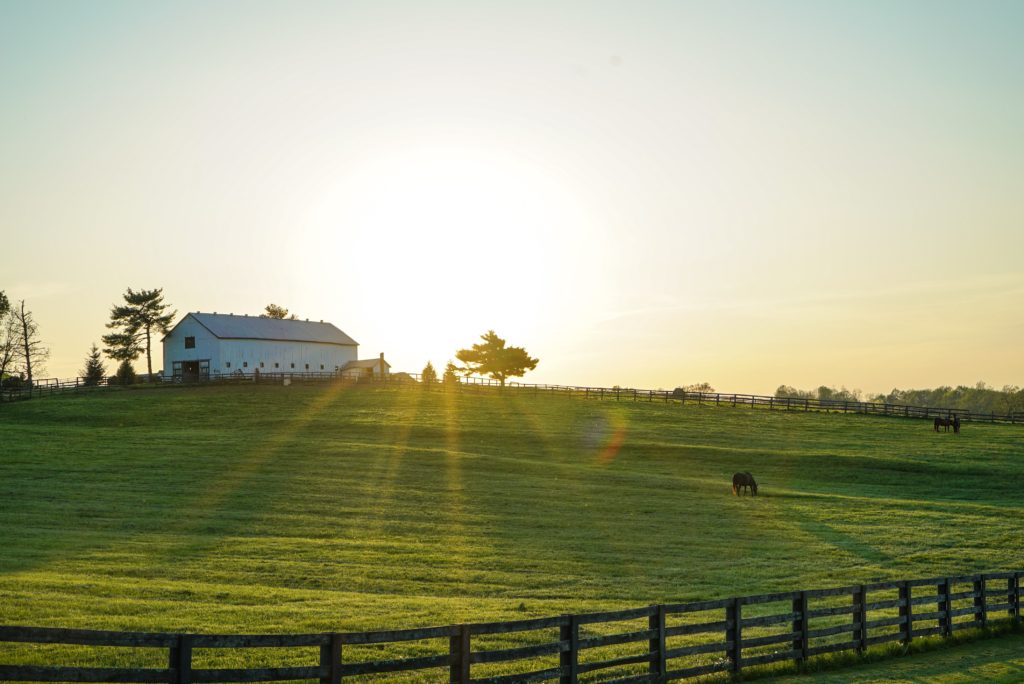
How many acres will your horse property need? You’ll have to decide how many horses you have/want to have, if you’re going to run a boarding facility, and the set-up you want for your horses.
Many resources recommend 2 acres per horse. Depending on your goals for your horses and properties, you many need to adjust this estimate. I live near a big city (Denver) and I know this can be very hard to find especially near a metropolitan area.
Getting large acreage is also difficult based on budget. More acres = more money!
If you aren’t sure how many acres you want/need, I suggest purchasing more than you think you’ll need. We just bought our first horse property 3 years ago, at 5.5 acres. I like not being super close to the neighbors but I don’t think I’d want 10 horses on this property (11 is the limit based on our zoning).
So consider how many horses you will one day have when deciding how many acres you need. Sure, you could keep 1 horse on 1/3 acre, but would you have room to ride and room to let your horse roam? Probably not!
Which brings me to the next thing you need to consider. Zoning. If you want to board horses, or have lots of horses, zoning can ruin your plans. You can typically get a property re-zoned but it will cost you! Make sure you real estate agent really understands zoning, or call the county you are purchasing in to clarify the zoning regulations. Zoning will control what business you can or cannot run on your property (and what business your neighbors could conduct as well). Zoning determines the number of animals allowed on your property. And zoning ultimately decides IF you can have horses on your property. These are all very important, so you need to make sure you understand the zoning in the area you are purchasing.
The Set-Up
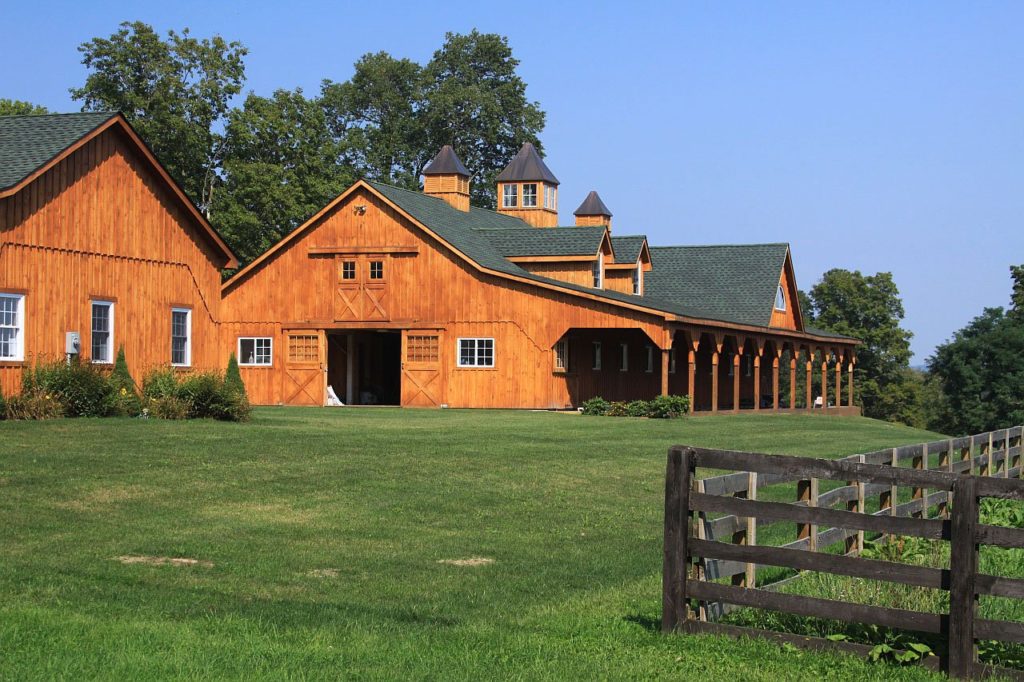
What am I referring to with the “set-up” of a horse property? I mean the layout and the structures that exist on the land and what changes you are going to require for your ideal horse property.
Here are the things you should look at for the set-up of a horse property:
- Outdoor Arena
- Indoor Arena
- Round Pen (or area to install one)
- Barn
- Sheds
- Paddocks
- Turnout Options
- Fencing Type
Zoning
Make sure you know (or find out) the zoning of the horse property you are looking at. It depends on what county/state/city what the specific zoning classifications and requirements will be for you. If you don’t fully trust your real estate agent, I would suggest checking the horse property with the zoning entity in the county of the property.
Zoning can dictate how many horses you can have on your property, whether you can run a boarding facility or other business on your property, where and what you can build on the land, and what you can use the land for.
Check the zoning of any horse property you are interested in to make sure you can have horses on it and use the land for what you’re planning.
Water
You’re going to need water for yourself and your horses.
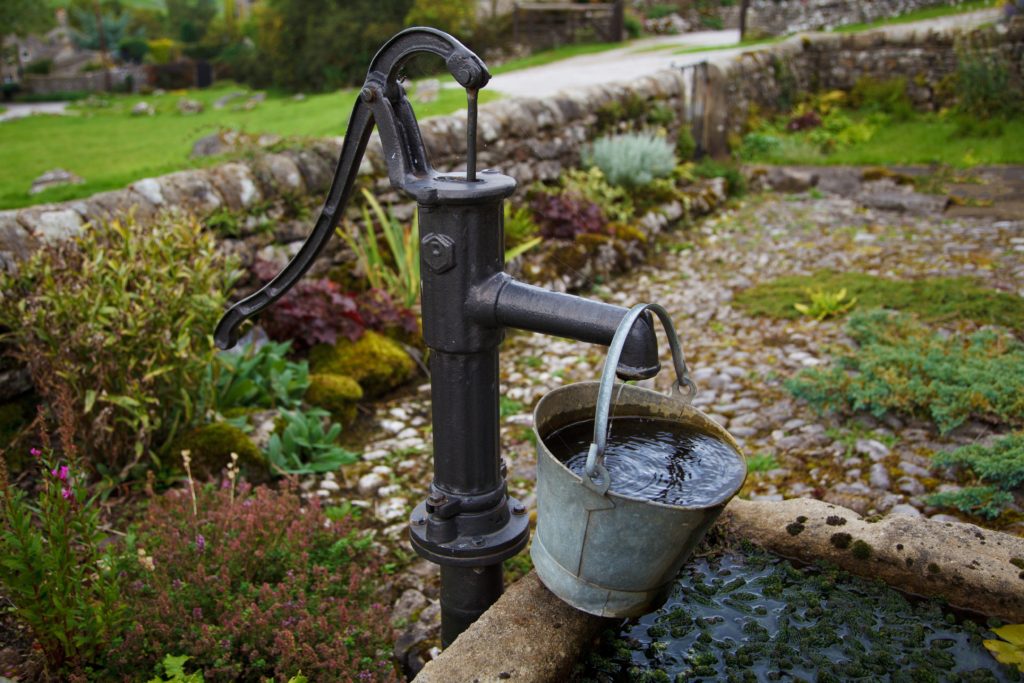
If you are building on a property from scratch, you’ll need to factor in the cost of a well, or hooking up to city water. Additionally, if your property already has a water source, make sure you know whether it is city water or a well. This can effect the water quality you receive as well as the cost of your water.
If you are on a well, I highly suggest having the well inspected and tested. Ours was tested for the water quality (excess amounts of minerals in your water can create problems!)
When doing our horse property search, we looked at a property north of Denver – not the property we ended up buying – and the amount of sodium in the water would have killed any plants we would have watered with it. If it’s that bad for plants, I cannot imagine that it would be healthy for our horses or ourselves, and probably wouldn’t taste very good..
Be aware of the cost of water. If you are on city water, your horses are going to use a lot of water. Horses not only drink a lot, but if you hose them off, have a wash rack, water the arena, or need an injury cold-hosed, that’s going to use a lot of water!
If you are on a well, the more water you use does not cost you more money like it would if you were paying by the quantity used like you do with city water. However, keep in mind that well pumps cost money to run, and well pumps go out! (Yes, this has already happened to us in the 4 years we have owned our horse property.) Well pump replacement is going to cost a few thousand dollars. Start a savings account to prepare and budget for these types of unexpected expenses.
The “Health” of the Land
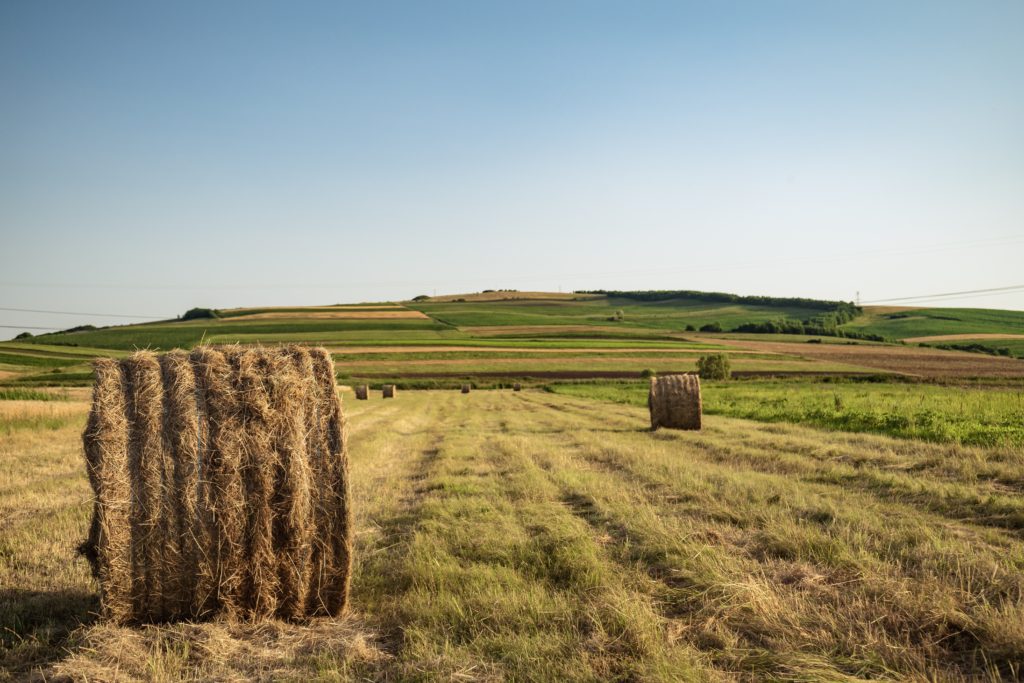
There are a few factors when considering the health of the horse property you are looking for or considering buying. You’ll want to make sure that it is – or can be set up to meet your needs.
Is the property hilly? Full of trees? Does it have a water source?
If you want to grow hay, you’ll need water rights that allow you to irrigate the hay, or you’ll be spending a lot to haul in water. The natural grass that grows may not be suitable to hay, so you should also make sure the soil is healthy enough to support hay growth.
Make sure that there are no noxious weeds in the horse pastures, or have a plan to get rid of them.
You should also check on the property to make sure it is not susceptible to flooding.
Avoid a property that is in a flood plane as that can create a ton of problems for you down the road – flooding being the most obvious, but insurance can be difficult to find and expensive, not to mention trying to deal with extra mud is just plain frustrating when you have horses.
Location
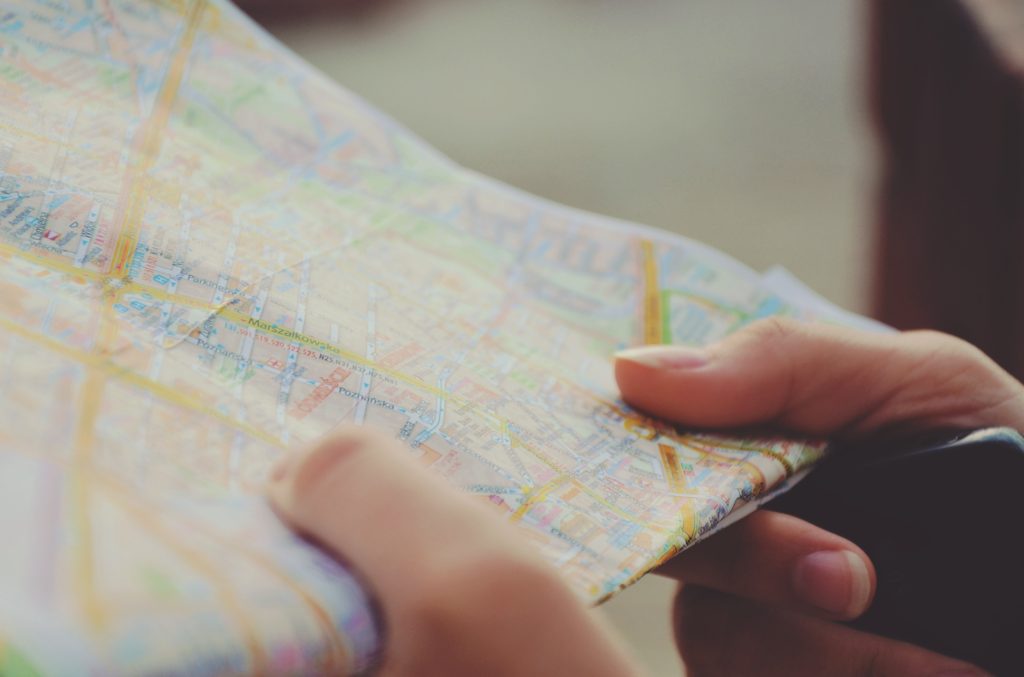
Location is very important for your property since that’s where you and your horses are going to live.
If you have gotten far enough to be considering what to look for in a horse property, then you probably know what state you’d like to find a property in, as well as a city or general area you are considering.
Are you planning to run a boarding facility on your horse property? You need to have clients and be close enough to your clients so they can board their horse with you. You’re going to pay more for a property near a big city, but you can likely charge more for board as well.
If you are buying horse property just for you and your horses and not a business, there are other considerations. You’ll need to make sure you are close enough to your job that your commute doesn’t kill you.
Another consideration is being close to a city or somewhere that you can get groceries and supplies. Additionally, you should consider the distance to an airport for travel (work or pleasure) , an airport, or just a town where you can get supplies if needed.
Horse property does get cheaper the farther you get from civilization, but you need to weigh the pros and cons of that distance when deciding where you want to move.
The House
We were talking so much about the horse part of the horse property, that maybe you forgot to take a look at the house. Depending on your budget, you may need to find a property that needs work.
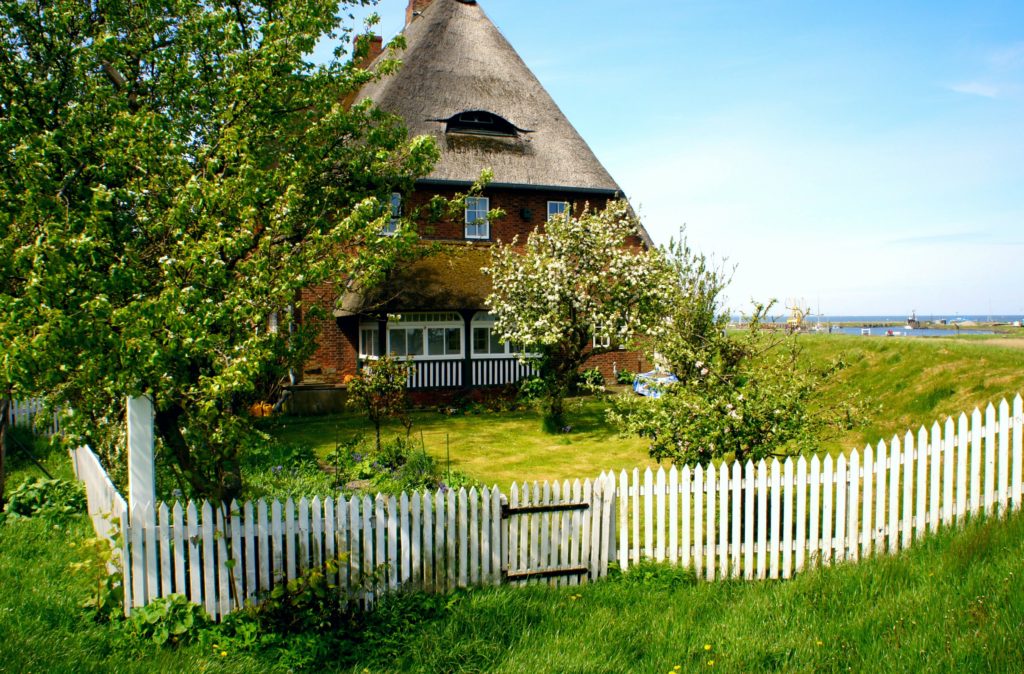
It is believed that renovating a “good bones” house would be cheaper than building all the horse facilities you’ll need. Arenas (especially if you need an indoor and an outdoor) can be super expensive as well as barns, sheds, paddocks and turnouts. You could easily spend the cost of a house by building the horse facilities.
So be prepared to spend more money, or do some work on the house already on a horse property. In addition to needing some possible work, make sure the house is the size you want. Try not to buy too big of a house that you’ll spend all your time maintaining it or a house too small that you’ll have to move once you have kids or have parents who want to move in.
Buying a horse property is a different beast because you have to think about all the stuff that people do when buying a house, plus factor in all the horse stuff. Check out this link to learn the red flags you should look for when buying a house.
Fencing
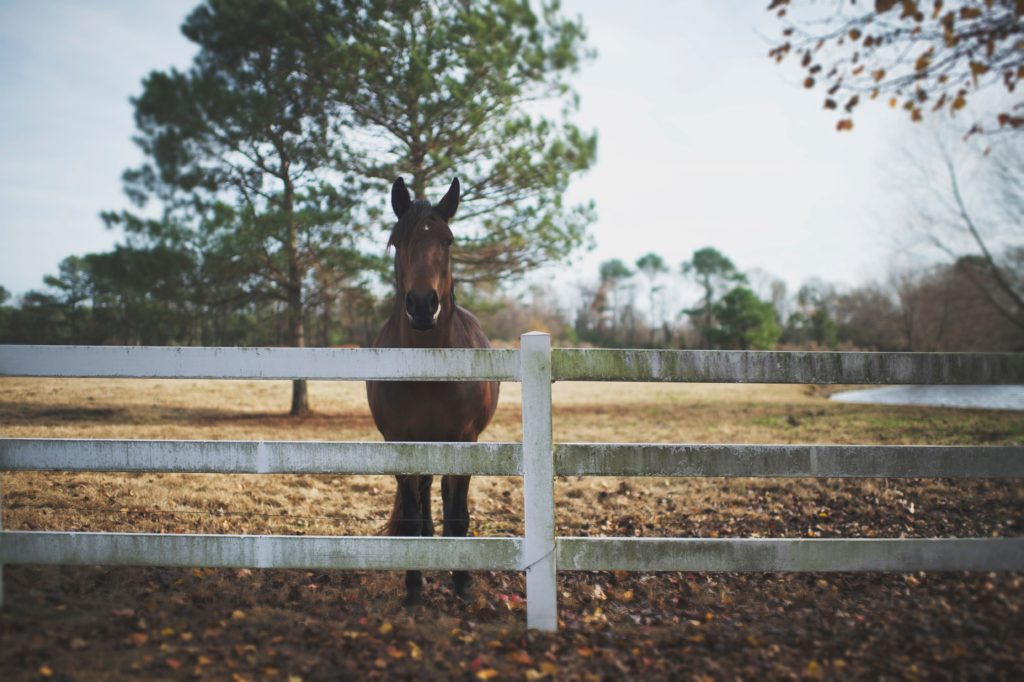
Fencing is also a very important part of your property because it is what holds your horses in and you need to decide what type of fencing you find safe or acceptable, or be prepared to pay for new fencing. There are many different types of fencing and each has it’s own pros and cons.
Here’s an overview of the most common types of fencing that you will find on a horse property:
PVC/Vinyl
PVC or vinyl fences look really nice, but once you actually put horses in them, you may think otherwise. These fences can easily shatter if kicked or leaned on, creating a large risk of injury to your horse.
You’ll also probably need to string electric (and run either solar or hook up electricity) to the inside of this type of fencing, so factor that into the cost.
COST – $19-35 per linear foot depending on area and fence style.
PROS of vinyl fence – it looks nice, requires little maintenance (doesn’t need to be sanded nor painted), and typically lasts several decades.
CONS – when it breaks, it is dangerous for horses, can be difficult to repair (without replacing whole sections of fence), and it is expensive compared to other options.
Wood
Wood fencing is a very common fencing choice for horses because it is relatively safe and looks nice. I like wood fences best for aesthetics and ease of use with horses because if a piece of wood is damaged, you can easily remove and replace it, and the fence is returned to it’s original appearance and function.
COST – $7-$30 per linear foot depending on number of rails and design.
PROS – Looks natural, less likely to shatter than PVC (although wood can splinter), easy to replace broken sections.
CONS – Price, Installation is a lot of work, can splinter depending on how a horse runs into it.
Electric Rope
The most popular brand of electric rope fencing for horses is Electro-Braid. Electric rope fencing is relatively easy to install, and lasts a long time. You do have to consider what type of posts you are going to put in, because they will likely require more maintenance than the actual rope. You will need strong posts on the corners of your fencing to hold up to the tension in the electric rope.
COST – $3-$15 per linear foot
PROS – low cost, low maintenance, easy to install, requires a lot less vertical posts than other types of fencing, usually a safer option if a horse runs into it.
CONS – Need to have strong corner posts, horses can get wrapped in the rope (especially if it is not kept tight)
Single Strand Wire/Barbed Wire
Wire fencing is one of the cheapest and easiest types of fencing to install. However, I also think it can be the most dangerous. Barbed wire is especially dangerous due to it’s ability to slice into your horse’s skin. But all wire can be dangerous especially if a horse doesn’t see it and tries to run through it.
COST – $1.50 per linear foot
PROS – Cheap, easy to install
CONS – Dangerous and easily cuts horses if they run through it. That’s reason enough for me to never use single strand or barbed wire.
No climb wire fence
No climb fencing is made of wire, but is small squares of wire, not just a single strand. No climb typically has 4″x2″ rectangles so that horses cannot put their feet through it.
Decide if the existing fence on a horse property is something you are comfortable having your horse in, or be prepared for the cost of replacing it. Fencing can be very expensive so prepare yourself for this expense if something needs to be changed or there isn’t any fencing on the horse property already.
COST – $3.50-$11 per linear foot
PROS – Horses cannot stick their feet through it, cheaper than other fencing options, relatively simple installation
CONS – More material needed, fence posts have to be placed closet together to support the fence.
Find (The Best) Agent
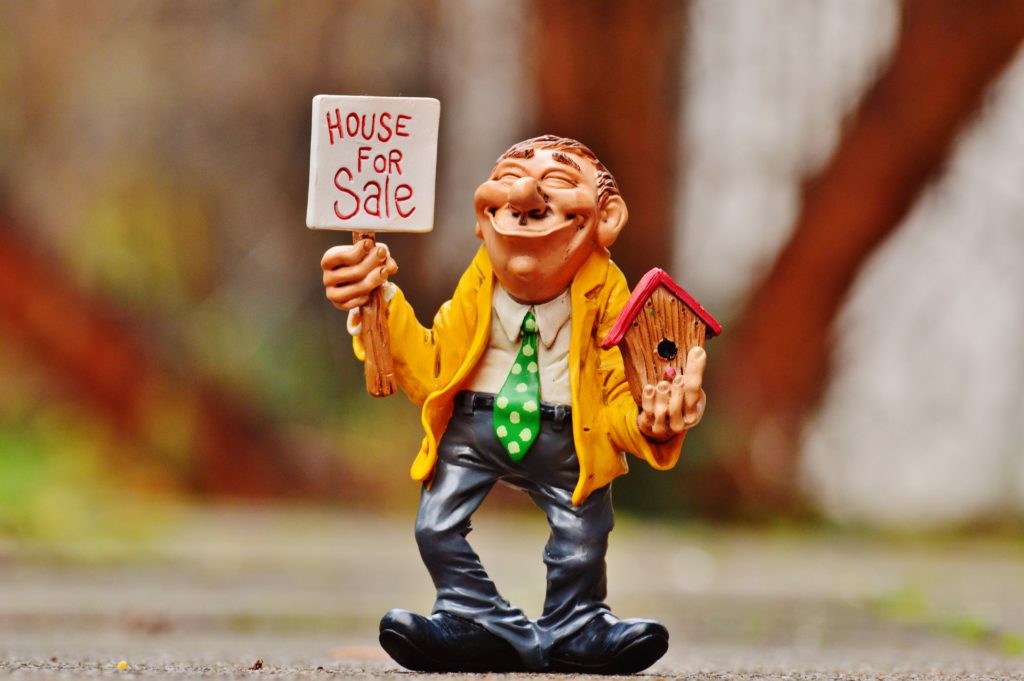
Finding a great real estate agent is essential to finding the perfect horse property. Ask around with friends, other boarders at a barn, family, Facebook, and horse groups in your area to see who everyone suggests for a real estate agent who knows horse property.
I also highly suggest going with your gut with a real estate agent. If something doesn’t feel right, then go with what your gut tells you and find someone else. We fired our first real estate agent because he did not respect our opinions and what we were looking for. Best decision – because that agent was not going to get us the property we wanted.
Leave a Reply